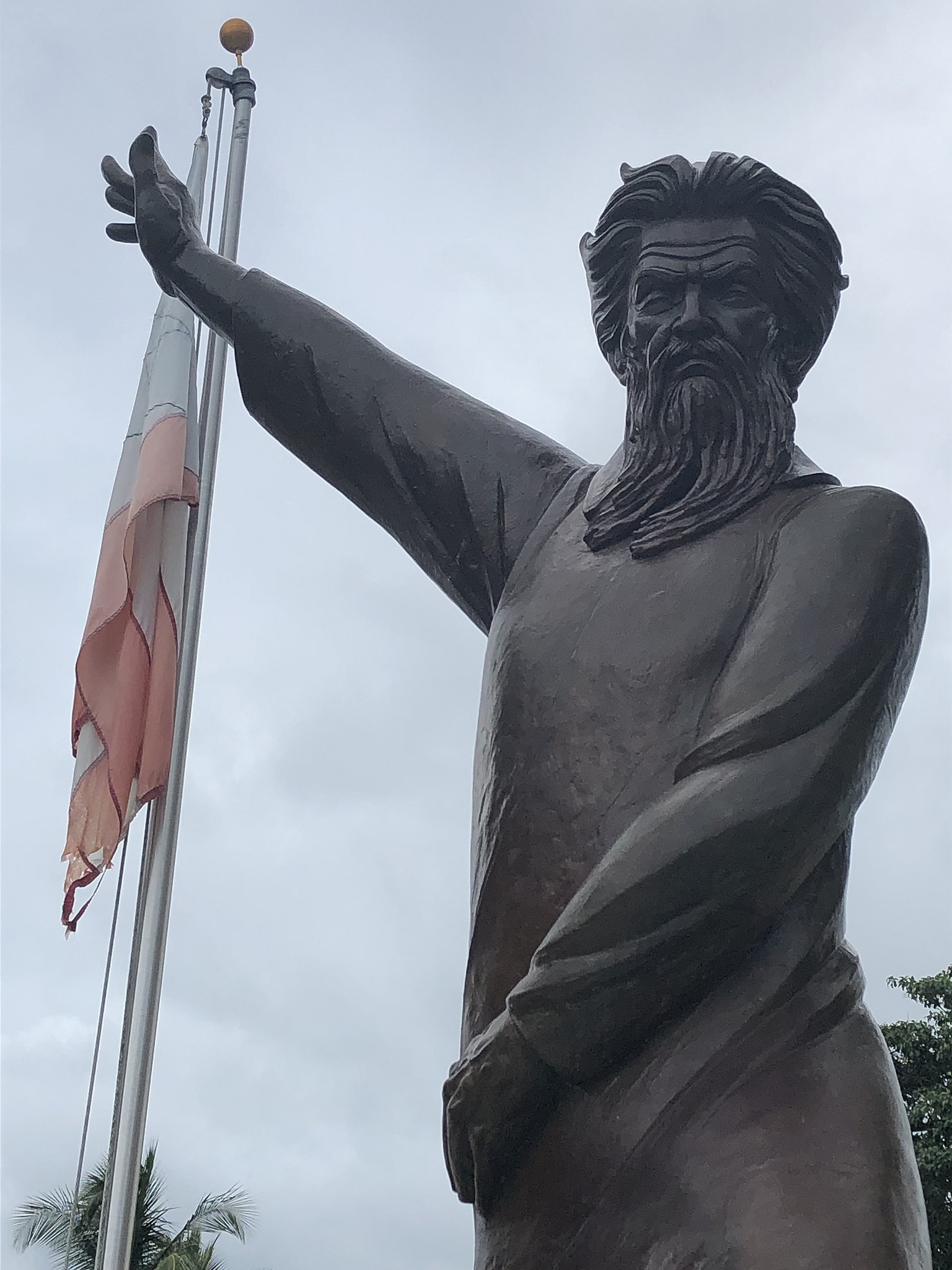

Statue of Dr. Ramón Emeterio Betances, called father of the Puerto Rican nation, who said ‘I don’t want colonial status, either with Spain or the United States. I want my country to be free, sovereign and independent.’
On Sept. 23, 1868, el Grito de Lares erupted in the town of Lares, Puerto Rico, the island’s first armed uprising for independence and against Spanish colonial rule. Farmers, enslaved Africans and workers led a revolt for Puerto Rico’s independence, to abolish slavery and to end worker abuse and exploitation via the “libreta de jornalero” or day-laborer’s passbook. They fought for social and economic improvements and control of the archipelago’s finances.
Statue of Dr. Ramón Emeterio Betances, called father of the Puerto Rican nation, who said ‘I don’t want colonial status, either with Spain or the United States. I want my country to be free, sovereign and independent.’
It is 154 years later, and Puerto Rico is still under colonial rule. The U.S. replaced Spain and created a neocolonial relationship with the archipelago. The U.S. has awarded some concessions under the guise of “freedom,” but in reality there is little control left to the Puerto Rican government or its people. This has been most noticeable since the creation of the PROMESA Act and its Fiscal Control Board, which is authorized to manage the country’s finances.
Under the guise of restructuring Puerto Rico’s debt, the Junta has sold off essential services to private companies, including the electrical grid, which is currently under the control of LUMA Energy. The utility company has been relentless in its treatment of the Puerto Rican people by outsourcing jobs, imposing seven price increases for services within one year and leaving people without energy for hours, sometimes even days, with its constant blackouts.
Still under colonial rule
It is 154 years later, and workers in Puerto Rico are still exploited. In recent years, workers have protested the cuts in their wages and pensions. After Hurricane Maria, the island suffered an exodus of health care professionals, due to the crumbling health care system that left people in a precarious state during a very distressing time. Doctors who were already underpaid were not being fully compensated, necessitating their departure from Puerto Rico because their wages were compromised.
In 2022, public workers, namely teachers, protested the first wage increase in over 14 years, which was a mere $400. This amount was added to an already dismal wage, and there were threats to cut pensions even more. In addition, the workers faced rising prices of goods and essential services, such as with LUMA, and an increase in housing costs.
It has been five years since Hurricane Maria ravaged Puerto Rico, and now the people are witnessing the effects that Hurricane Fiona has had on the already crumbling system on the island. If Puerto Ricans were ever under the impression that being under Yankee rule benefits our people, the last 154 years are revealing. In the last few years, the deteriorating conditions have been laid bare, and the people’s anger has been brewing and can no longer be suppressed.
On Sept. 25, at the Puerto Rican parade in Philadelphia, I saw my people waving our flag high with pride, listening to our music, dancing and enjoying themselves. In the midst of it, a small but mighty group, my comrades, the Philly Boricuas, were handing out propaganda denouncing the selling of the island to exploitative hedge fund managers and “crypto bros.”
Drowned out by the booming songs, wailing salsa and reggaeton beats with each flyer handed out, we thought to ourselves: “Despierta Boricua! Puerto Rico no se vende, se defiende!” (“Wake up Boricua! Puerto Rico is not for sale! It defends itself.”)
Hamas issued the following statement on April 24, 2025, published on Resistance News Network. The…
By D. Musa Springer This statement is from Hood Communist editor and organizer D. Musa…
Portland, Oregon On April 12 — following protests in Seattle and elsewhere in support of…
This statement was recently issued by over 30 groups. On Friday, March 28, Dr. Helyeh…
When Donald Trump announced massive tariffs on foreign imports April 2, Wall Street investors saw…
The century-long struggle to abolish the death penalty in the U.S. has been making significant…